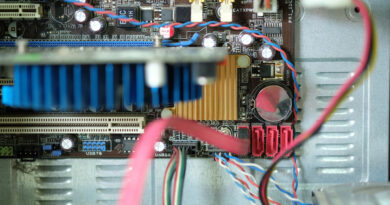Beyond Compliance: Maximizing Safety with Comprehensive Electrical Testing in Faridabad
Introduction
In today’s fast-paced world, electrical systems play a crucial role in our daily lives. From powering our homes to fueling industries, electricity is the lifeblood of modern society. However, with great power comes great responsibility, and ensuring the safety and reliability of electrical installations is paramount. In Faridabad, a city known for its industrial prowess, comprehensive electrical testing goes beyond compliance to maximize safety and prevent potential hazards. This article explores the importance of comprehensive electrical testing and its impact on safety in Faridabad.
Table of Contents
- The Significance of Electrical Testing
- Understanding Comprehensive Electrical Testing
- Electrical Testing Standards and Compliance
- The Role of Testing in Preventing Electrical Accidents
- Types of Electrical Testing
- Insulation Resistance Testing
- Earth Resistance Testing
- Circuit Breaker Testing
- Load Testing
- Thermographic Testing
- Power Quality Analysis
- Ground Fault Testing
- Surge Testing
- Continuity Testing
- Voltage Drop Testing
- Impulse Testing
- Benefits of Comprehensive Electrical Testing
- Enhanced Safety
- Increased Reliability
- Improved Energy Efficiency
- Cost Savings
- Compliance with Regulations
- The Process of Comprehensive Electrical Testing
- Preparing for Testing
- Conducting the Tests
- Analyzing Test Results
- Addressing Deficiencies
- Choosing a Reliable Electrical Testing Service Provider
- Experience and Expertise
- Accreditation and Certifications
- Range of Services
- Customer Reviews and References
- Timeliness and Flexibility
- The Future of Electrical Testing
- Technological Advancements
- Integration with Smart Systems
- Predictive Maintenance
- Conclusion
- Frequently Asked Questions (FAQs)
- Why is electrical testing important?
- How often should electrical testing be conducted?
- Can I perform electrical testing myself?
- What are the consequences of neglecting electrical testing?
- How can I find a reliable electrical testing service provider in Faridabad?
The Significance of Electrical Testing
Electrical testing serves as a critical component in ensuring the safety and efficiency of electrical systems. It involves a comprehensive evaluation of various electrical components and circuits to identify potential faults, weaknesses, and hazards. By conducting regular testing, both individuals and businesses can mitigate risks, prevent accidents, and maintain the optimal performance of their electrical installations.
Understanding Comprehensive Electrical Testing
Comprehensive electrical testing entails a thorough examination of the electrical infrastructure, encompassing various tests to assess the integrity, performance, and compliance of the system. This approach goes beyond mere compliance with regulations, aiming to identify hidden issues and potential risks that might go unnoticed during routine inspections.
Electrical Testing Standards and Compliance
Electrical testing adheres to a set of industry standards and regulations to ensure uniformity, safety, and reliability. In India, the Bureau of Indian Standards (BIS) and the Central Electricity Authority (CEA) define guidelines for electrical installations and testing procedures. Compliance with these standards is crucial to guarantee the safe operation of electrical systems.
The Role of Testing in Preventing Electrical Accidents
Electrical accidents can have catastrophic consequences, ranging from property damage to injuries and even fatalities. Comprehensive electrical testing acts as a proactive measure to prevent such accidents by identifying potential hazards, such as faulty wiring, insulation breakdown, or overloaded circuits. Regular testing allows for early detection and timely corrective measures, reducing the risk of electrical accidents.
Types of Electrical Testing
- Insulation Resistance Testing: This test measures the resistance of electrical insulation to ensure its effectiveness in preventing current leakage and electrical faults.
- Earth Resistance Testing: Earth resistance testing determines the resistance between electrical equipment and the ground, ensuring the integrity of the grounding system.
- Circuit Breaker Testing: Circuit breakers are critical safety devices that protect electrical circuits from overloads and short circuits. Testing their functionality helps identify any malfunctions and ensure proper protection.
- Load Testing: Load testing verifies the capacity of electrical systems to handle expected loads and assesses their performance under various operating conditions.
- Thermographic Testing: By using thermal imaging cameras, thermographic testing detects temperature abnormalities in electrical components, which can indicate potential issues or areas of concern.
- Power Quality Analysis: Power quality analysis examines various electrical parameters, including voltage, current, and harmonics, to assess the quality and stability of the electrical supply.
- Ground Fault Testing: Ground fault testing identifies faults that occur when an electrical current finds an unintended path to the ground, which can lead to electrical shocks or fires.
- Surge Testing: Surge testing evaluates the resilience of electrical equipment against power surges and transient voltages, safeguarding sensitive electronics from damage.
- Continuity Testing: Continuity testing checks the integrity of electrical connections and ensures the uninterrupted flow of current between components.
- Voltage Drop Testing: Voltage drop testing measures the voltage difference between two points in an electrical circuit, helping identify voltage irregularities that can affect equipment performance.
- Impulse Testing: Impulse testing simulates lightning strikes or other transient voltage events to assess the insulation strength of electrical systems.
Benefits of Comprehensive Electrical Testing
- Enhanced Safety: Regular testing minimizes the risk of electrical accidents, protecting individuals and property from potential harm.
- Increased Reliability: Testing identifies and resolves issues before they escalate, ensuring uninterrupted power supply and reducing downtime.
- Improved Energy Efficiency: By detecting inefficiencies, testing allows for corrective measures that optimize energy consumption and reduce utility costs.
- Cost Savings: Proactive testing prevents costly electrical failures and repairs, ultimately saving money in the long run.
- Compliance with Regulations: Comprehensive electrical testing ensures compliance with relevant standards and regulations, avoiding penalties and legal issues.
The Process of Comprehensive Electrical Testing
- Preparing for Testing: This involves gathering information about the electrical system, planning the testing schedule, and ensuring proper safety measures are in place.
- Conducting the Tests: Skilled technicians perform a series of tests based on the specific requirements of the electrical system, using specialized equipment and techniques.
- Analyzing Test Results: The collected data is analyzed to identify any deviations from expected parameters and pinpoint potential areas of concern.
- Addressing Deficiencies: If any issues are found during testing, appropriate corrective actions are taken to rectify the problems and restore the electrical system’s integrity.
Choosing a Reliable Electrical Testing Service Provider
When selecting an electrical testing service provider in Faridabad, consider the following factors:
- Experience and Expertise: Choose a provider with a proven track record and extensive experience in conducting comprehensive electrical testing.
- Accreditation and Certifications: Ensure that the service provider possesses relevant accreditations and certifications, indicating their adherence to industry standards.
- Range of Services: Look for a provider who offers a wide range of electrical testing services
to cater to diverse testing requirements, including those specific to your electrical system.
- Customer Reviews and References: Read customer reviews and seek references to gauge the service provider’s reliability, professionalism, and customer satisfaction.
- Timeliness and Flexibility: Choose a service provider that values timeliness and offers flexibility in scheduling tests to minimize disruptions to your operations.
The Future of Electrical Testing
As technology continues to advance, the field of electrical testing is poised for significant developments. Some key areas to watch for in the future include:
- Technological Advancements: Innovations such as advanced testing equipment, automation, and data analytics will further enhance the accuracy and efficiency of electrical testing processes.
- Integration with Smart Systems: Electrical testing will increasingly integrate with smart systems, enabling real-time monitoring, predictive maintenance, and remote diagnostics.
- Predictive Maintenance: Utilizing data analysis and machine learning algorithms, electrical testing will evolve to predict potential faults and recommend proactive maintenance measures, preventing breakdowns and optimizing system performance.
Conclusion
In Faridabad, comprehensive electrical testing goes beyond mere compliance to ensure maximum safety and reliability of electrical systems. By conducting various tests and inspections, potential hazards and weaknesses can be identified, mitigated, and rectified in a timely manner. With the assistance of reliable electrical testing service providers, individuals and businesses in Faridabad can safeguard their assets, enhance energy efficiency, and comply with industry regulations.
Frequently Asked Questions (FAQs)
- Why is electrical testing important?
Electrical testing is crucial for identifying potential hazards, preventing accidents, ensuring compliance with regulations, and maintaining the optimal performance of electrical systems.
- How often should electrical testing be conducted?
The frequency of electrical testing depends on factors such as the type of electrical system, its usage, and industry-specific regulations. It is recommended to consult with experts or follow the guidelines provided by regulatory bodies.
- Can I perform electrical testing myself?
While some basic tests can be performed by individuals with knowledge and experience in electrical systems, comprehensive electrical testing requires specialized equipment and expertise. It is advisable to hire professional electrical testing service providers for accurate and reliable results.
- What are the consequences of neglecting electrical testing?
Neglecting electrical testing can lead to various consequences, including electrical accidents, equipment failures, increased downtime, higher repair costs, legal liabilities, and non-compliance with safety regulations.
- How can I find a reliable electrical testing service provider in Faridabad?
To find a reliable electrical testing service provider in Faridabad, consider factors such as their experience, accreditations, range of services, customer reviews, and flexibility in scheduling tests. Seek recommendations and compare multiple providers to make an informed decision.




